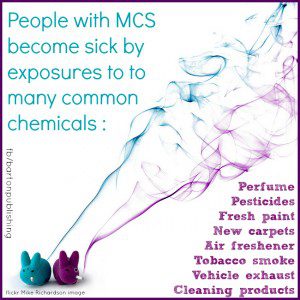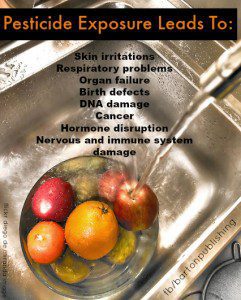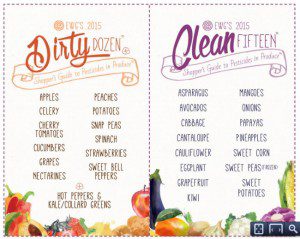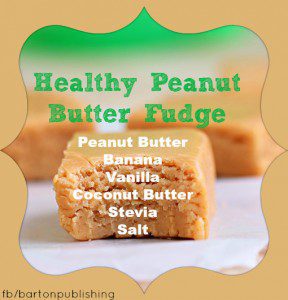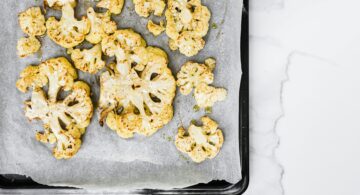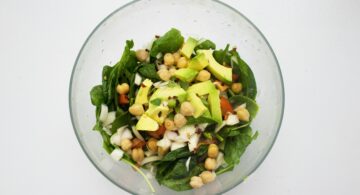Pollutant-Free Eating for MCS
Environmental pollution… Oil spills…Climate change…Ozone depletion… we live in a world that is slowly dying by the hands of man. Industrialization, poor waste management, and greed have left our earth more contaminated than ever before in the history of this planet.
But, I’m not here to speak on behalf of environmentalist and scientists. I am here to point out a reality that is overlooked amidst the mass concern of our carbon footprint. Yes, nature has responded to this age of industrialization, which leaves scientists and environmentalists concerned about the future of our planet. They cry out on behalf of the trees and the animals that walk the earth. But millions of people are left saying, “What about me?”
Today, chemicals, pollutants, and manufacturing wastes have left millions of people with illnesses that never existed before this modern age. We humans are made of the same basic elements as the plants and animals, so what pollutes them, pollutes us. Tragically, when a person is affected by pollution or chemicals, they are often written off as having some sort of psychological issue. Even the American Medical Association Council on Scientific Affairs believes that Multiple Chemical Sensitivity (MCS) should not be considered a recognized clinical syndrome.
Can you imagine being chronically sick and knowing that it is caused by chemical substances that you’re exposed to, only to be called a quack? Maybe you can imagine that because you’ve experienced this yourself. If so, I’m so sorry that in the pursuit of all things modernized and efficient, industries have failed to recognize the damage they are doing to the human body.
Ironically, in a time where technology and medicine are saving more lives than ever before in human history, millions are simultaneously being poisoned. Chemical exposure is leaving millions ill and pushed aside with no answers. It is a tragedy that no one wants to hear about.
What is Multiple Chemical Sensitivity?
Most people who become chemically sensitive were once healthy individuals who tolerated chemical exposures with no noticeable side effects, just like everyone else. At some time in their lives, they were exposed to chemicals at a level from which they did not recover.
Some developed MCS after a renovation or newly built home, having carpets installed in their office, or exposure to pesticides. Other people became ill over a period of years, from cumulative exposures of everyday life that built up in their body’s tissues.
On-the-job hazards are a common cause of these life-altering exposures. Some of the most common MCS inducing jobs include:
- Construction
- Metalworking
- Woodworking
- Automotive
- Textile
- Agriculture
- Information technology
- Waste management
- Cleaning
- Perfume
- Pesticides
- Tobacco smoke
- Fresh paint
- New carpets
- Air freshener
- Vehicle exhaust
- Cleaning products
People with MCS can become extremely ill after exposures of only a few seconds to tiny amounts of these substances. Chemically sensitive people also frequently react to foods, drugs, molds, and electromagnetic fields.
Treating MCS
Treating multiple chemical sensitivity requires something more than just a medicine or pill. The two, most efficient ways to treat MCS are:
- Avoidance
- Nutrition
The most effective way to avoid offending chemicals is to adopt a natural lifestyle. This includes using natural alternatives for:
- Skin and body care
- Cleaning supplies
- Water (filtered is best)
- Yard and pest products
- Home construction (using tile or wood floors instead of carpet, etc.)
With the growing popularity of natural and “green” products, it is now easier than ever to replace your regular household items with safer alternatives. Even those who do not suffer with MCS can prevent future harm to themselves and their family by switching to all-natural alternatives. The internet is brimming with blogs and websites devoted to this way of life. Even this magazine, Home Cures That Work, is devoted to the lifestyle of maintaining health and wellness by adopting a chemical free, natural lifestyle!
However, nutrition is often overlooked in treating multiple chemical sensitivity. Many people who are chemically sensitive have numerous nutritional deficiencies. These deficiencies lead to a detoxification system that does not function properly. Our enzymatic, metabolic, and detoxification pathways are dependent on adequate vitamins, minerals, and other nutrients. This makes nutrition of obvious importance and concern for those with MCS.
Studies have shown that those with chemical sensitivities tend to have deficiencies in magnesium, B6, and vitamin C. They also have lowered levels of antioxidants throughout the body, which in turn impairs neutralization of free radicals and toxins. In one study, patients with chemical sensitivities were treated with antioxidants like vitamin C, selenium, and zinc.[1]
With these antioxidants, they exhibited both improvement and relief of symptoms!
What separates a typical person from someone with MCS is the ability to safely detoxify chemicals out of the body. This is why improved nutrition is key to the resolution of symptoms in those with chemical sensitivities! When someone with MCS is given the proper nutrients, they can detoxify, neutralize, and metabolize chemicals. This allows them to resume a normal life!
Chemical sensitivities can be caused by several factors, one of which could be fungal infections. The body will sometimes allow Candida in to use as a storage unit for chemicals or heavy metals or any number of harmful synthetics that could harm the body if not contained. Candida releases these toxins, which are not easily metabolized in those with MCS due to a lack of detoxification ability. This results in an overall feeling of fatigue and general state of feeling unwell. The good news is once the fungal infection is gone and the immune system is boosted; the body no longer over-reacts to the chemicals to which we are constantly exposed.
If a person has a high body burden of heavy metals, those heavy metals are thought to contribute to the development or aggravation of MCS. Heavy metals are part of the “total load” of toxins in the body, and may reduce the ability of the multiple chemical sensitivity patient to cope with other low dose toxins. These metals can accumulate in the tissues and cause neurological issues and severe mineral imbalances.
Here again, diet can help correct the inadequacies in those with chemical sensitivities. Proper nutrition can switch on the body’s ability to detoxify, allowing those with MCS to rid their body of chemicals and therefore avoid adverse reactions. It can also help them overcome candida and cleanse excess metals out of the body.
When given the rights foods, the body can restore normality and truly give someone with MCS and new lease on life!
Clean Eating for MCS
Clean eating is a new term in the natural health world used for a diet that is free of chemicals and artificial ingredients. Just as we want a clean environment that is free from pollutants, we should aim for a body that is free from pollution as well!
What you eat determines the cleanliness of your body. For example, eating processed foods with chemical additives and pesticide residues is going to pollute the environment inside your body. However, eating whole foods packed with nutrients gives each bodily system what it needs to metabolize, detoxify, and function at its highest capacity! This can reduce symptoms of MCS and help bring back normality into your life!
Eating for MCS is centered around two main principles:
- Consume foods free of pesticides, preservatives, and other artificial ingredients.
- Focus on foods high in antioxidants, magnesium, B6 and vitamin C.
Avoiding pesticide residues in foods is no easy task. Today’s produce is heavily sprayed and mass produced in order to keep up with demand. Pesticides keep the pests away, therefore increasing yield. However, spraying the food we consume comes with consequences. Pesticides are designed to kill and their effects on the human body should not be ignored.[2]
Side effects from pesticide exposure can not only induce or aggravate MCS, but can also cause:
- Skin irritations
- Respiratory problems
- Organ failure
- Damage to nervous and immune systems
- Birth defects
- DNA damage
- Disruption of the hormonal system
- Cancer
Unfortunately, scrubbing, soaking, and peeling the skin off of produce does not eliminate pesticide residue. Using these techniques may reduce pesticides, but sensitive individuals, such as those with MCS, shouldn’t rely solely on these methods. This is because pesticides are sprayed throughout the growing process and absorbed throughout the entire plant, not just the outer surface.
Fresh fruits and vegetables are highest in most of the vitamins, minerals and antioxidants needed by those with MCS. But, avoiding them altogether would be counterproductive. Thankfully, the Environmental Working Group (EWG) tests fruits and vegetables each year and rates them from the highest in pesticides to the lowest. For example, in 2014 the average grape they tested contained 15 different pesticides! On the other hand, only 1% of the avocados tested contained any detectable pesticides.
Each year, after testing the foods, the EWG puts together the Dirty Dozen and Clean Fifteen lists. The Dirty Dozen ranks the top 12 fruits and vegetables with the highest levels of pesticide residues. The Clean Fifteen however contains the 15 lowest levels of pesticides residues.
Shopping from the Clean Fifteen list and avoiding the Dirty Dozen is one of the best ways to reduce pesticide residues in your diet. However, buying organic is truly the only way to bypass pesticides. The organic seal assures you that the farmer did not use chemical pesticides when raising his crops. Personally, I use my Dirty Dozen list as my “buy organic” list.Avoiding artificial ingredients is also extremely crucial for MCS. These chemical additives are known for causing serious allergic reactions. Lab-created, chemical-based preservatives and artificial colors, flavors, and sweeteners can not only cause allergic reactions, but trigger disease!
Always read labels before consuming anything you eat and if you spot a name that doesn’t sound like food, it likely isn’t.
Some common artificial ingredients and their side-effects[3] include:
- Sodium benzoate: ADHD, DNA damage, cancer
- Monosodium glutamate: heart palpitations, migraines, chest pain
- Sodium nitrite: Irritability, headaches, cancer[4]
- Sulfites: fever, rashes, asthma attacks
- Potassium sorbate: migraines, swollen eyes, mouth, and throat
- Aspartame: altered serotonin levels, epilepsy, Parkinson’s, cancer
Lastly, it is important to incorporate foods that contain the micronutrients that are often lacking in those with MCS: magnesium, B6, and vitamin C. These nutrients are important in metabolism and detoxification processes throughout the body.
Foods rich in magnesium include:
- Raw organic spinach
- Brown rice
- Pumpkin seeds
- Avocado
Foods rich in B6 include:
- Sunflower seeds
- Chicken (organic)
- Pistachio’s
- Banana’s
Food’s rich in vitamin C include:
- Organic kale
- Organic strawberries
- Broccoli
- Oranges
I also want to note that eliminating gluten, sugar, and dairy can also benefit those who suffer with MCS. These foods tend to aggravate the digestive tract and lower immunity, exacerbating allergenic reactions. Taking a probiotic supplement and drinking probiotic rich drinks like kombucha and kefir water may also help. They will strengthen the digestive system and build the immune system, which can ease allergenic symptoms in those with MCS.
It is important to remember throughout your journey of clean eating, to keep a food diary. Even foods that are free of chemical additives can sometimes cause reactions in those who are chemically sensitive. Note any sort of reaction whether it is gas, headache, or heartburn. Try eliminating the offending food and note any improvement in your symptoms. This may take a bit of trial and error, but every individual is different and unfortunately there is no “one size fits all” diet for MCS.
Below are two recipes that will help in your quest towards pollutant-free eating. The first is a clean crockpot chicken recipe. I love crockpot recipes because they are not only easy to prepare, but always produce such a tender and delicious chicken! So many crockpot recipes contain powder mixes or canned soups, which contain chemical additives. This recipe contains all-natural ingredients and is absolutely delicious served over brown rice for a warm, comforting dinner.
Crock Pot Curry Chicken
Ingredients:
- 3 pounds of organic or free-range chicken (breasts, thighs, chicken on the bone, etc.)
- 1 large onion chopped
- 2 carrots chopped small
- 2 clove garlic minced
- 1 tbsp curry powder
- 1 tbsp organic mustard (condiment, not the spice)
- 1/2 cup coconut cream (liquid) or milk
- 1/2 cup organic chicken stock or water
- 2 Tbsp coconut oil
- Salt to taste
Directions:
- Place the carrots, onion and garlic at the bottom of the crock pot.
- Next place the raw chicken pieces on top of the vegetables, layering the chicken.
- Add the spices over the chicken.
- In a small pot melt the coconut oil and mix in the chicken stock or water and coconut cream until combined. Pour this over the chicken.
- Cook on low for 6 hours (it can go longer if you are not home yet).
- When done, remove the pieces of chicken and puree the liquid for gravy with an immersion blender. Serve over rice or quinoa. Enjoy![5]
Everyone needs a little sweet in their life! This all-natural healthy peanut butter fudge contains no added sugar and is packed full of protein, making it not only a healthy dessert, but a great snack as well! Peanut butter is high in both magnesium and B6 and bananas also contain magnesium and other important nutrients like potassium and manganese!
Healthy Peanut Butter Fudge
Ingredients:
- 1/2 cup organic peanut butter (use almond butter if peanut sensitive)
- 1 large banana (can sub with 2/3 cup coconut butter)
- 1 tsp pure vanilla extract
- 1/16 tsp salt (
- 2 tbsp coconut butter OR melted extra virgin coconut oil
- One packet or 15 drops of stevia
Directions:
- Stir peanut butter until there is no longer oil on the top.
- You can either combine all ingredients in a small blender until completely smooth, OR mash the banana and stir together ingredients very patiently by hand until completely smooth.
- Scoop into a small plastic container, parchment-lined glass container, candy molds, mini cupcake liners.
- Freeze until firm. Due to the melting nature of coconut, this fudge is best stored in the freezer.[6]
MCS symptoms can be drastically reduced and eliminated with a diet that is full of nutrient-dense and chemical-free foods! Don’t let the environment inside your body become polluted any longer! Clean up the environment inside your body by revolutionizing the way you eat. Your body is an ecosystem of it’s own. When you eliminate the toxic pollution, you will see your life flourish once again!
If you liked this article, then you’ll love these:
- 6 Tips to Prevent Food Allergies
- A Surprising Connection: Food and Asthma
- Eating For Maximum Nutrition
Sources:
[1]http://www.aehf.com/articles/treatment_options_mcs.html
[2] http://www.nursingdegree.net/blog/926/8-possible-side-effects-of-pesticides/
[3] http://www.wakingtimes.com/2013/10/14/5-food-additives-avoid/
[4] http://www.wholevegan.com/junk_food.html#Sodium%20Nitrite
[5] Adapted from realfoodforager.com
[6] Adapted from: chocolatecoveredkatie.com



